The Snowleader Foundation supports actions that involve the environmental protection of mountain areas by means of associative and general interest projects. Our wish is to get involved in strong projects; this is why we have also created a skill volunteering process, to support project leaders.
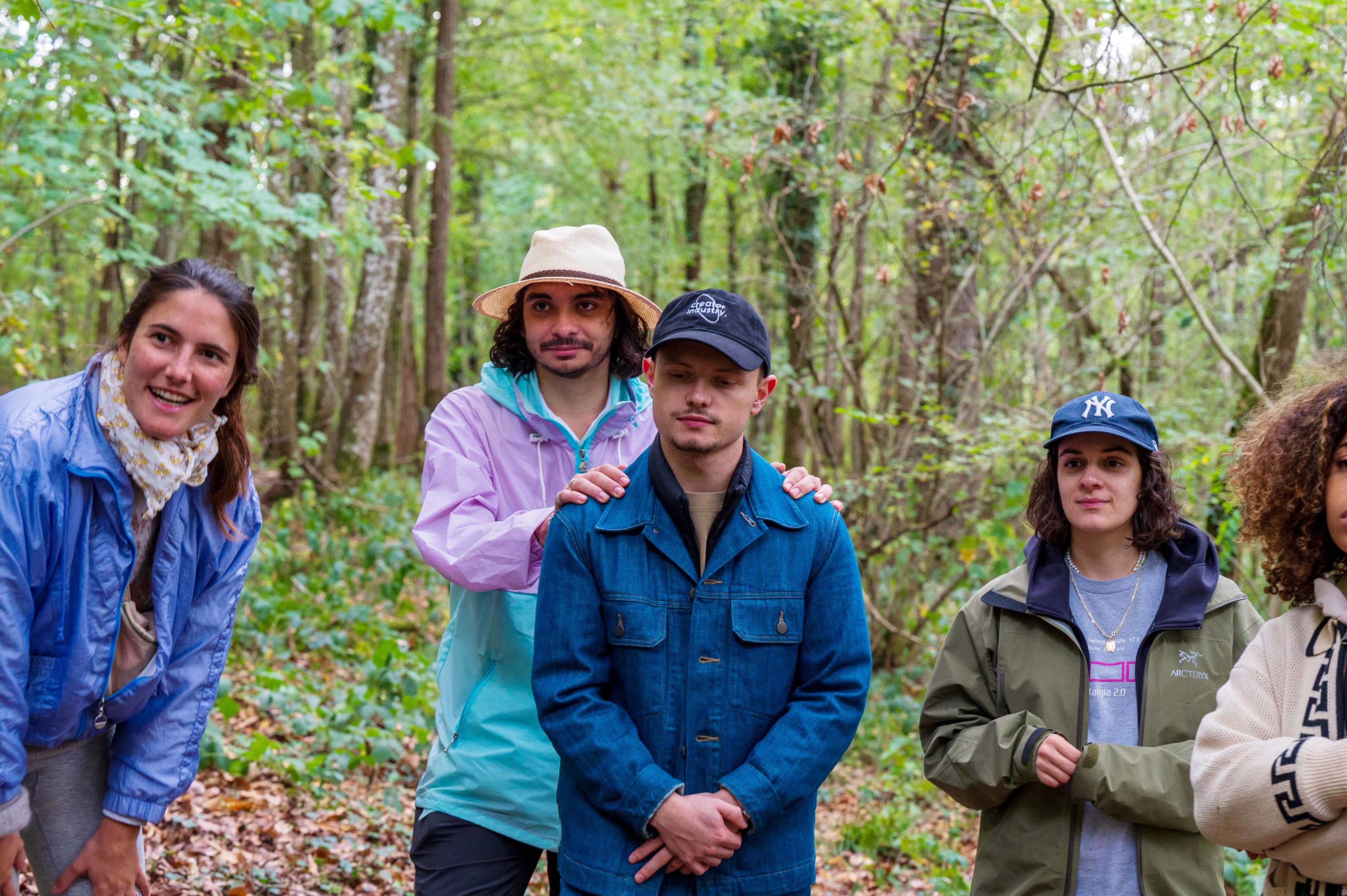
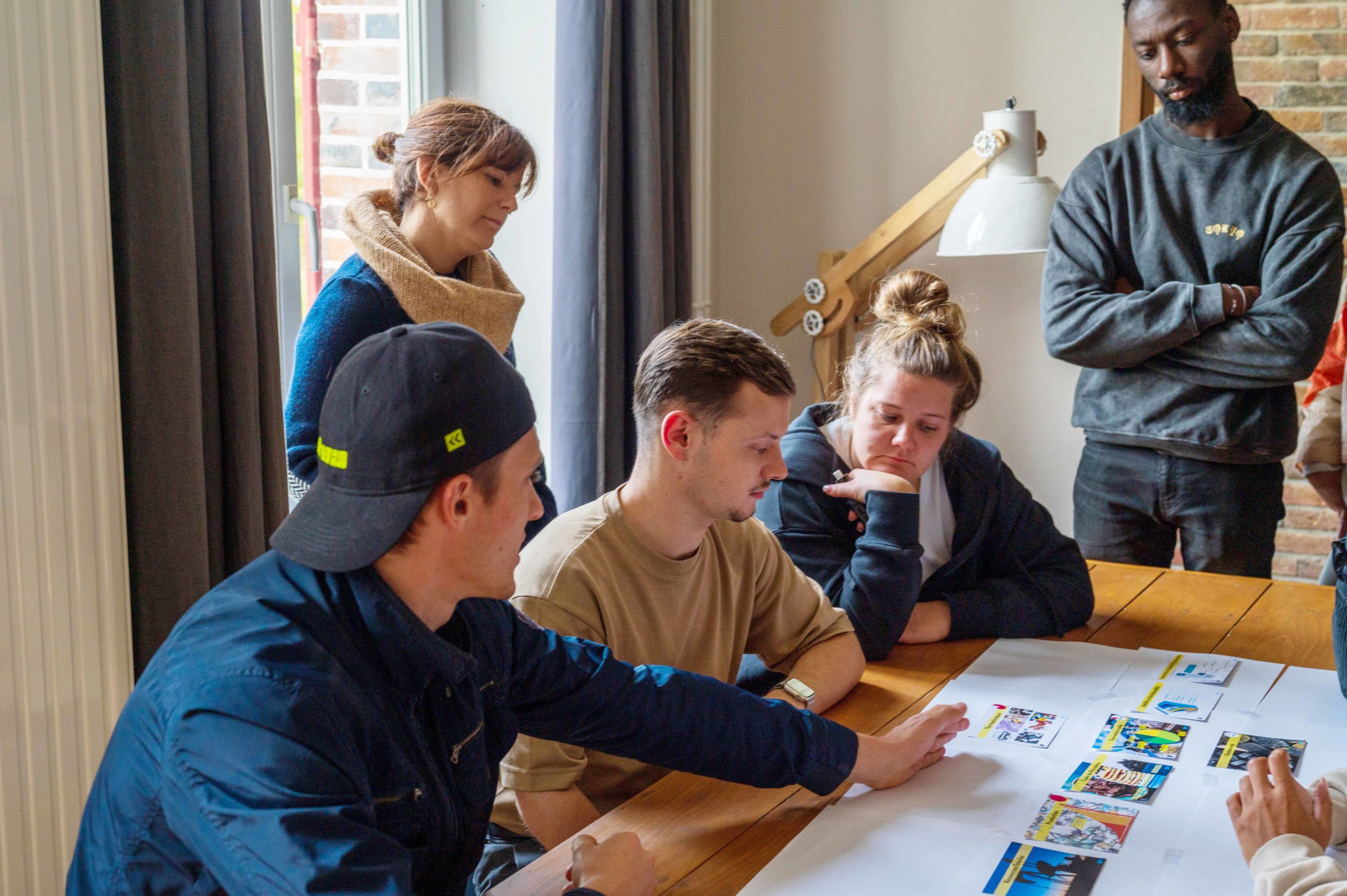
‘On Est prêt’ gathers experts and known figures to raise awareness, and to mobilise people with regards to environmental and social challenges by means of digital actions, intervention of cultural leaders, and video creation.
The association has worked with more than 500 known figures (singers, actors, high-level athletes), numerous experts, NGOs, journalists, and thought leaders, to create and disseminate various action methods, and tools for raising awareness, with a key message: ‘citizens are ready’.
‘Let Us Be the Change’ wishes to establish a measure recommended by the IPCC report aiming at raising awareness to a large number of people regarding ways to lead a low-carbon life, via social influencers. For this, three-day trips will be organised in Alpes du Nord, with influencers, for an immersion in the mountains. The purpose is to raise awareness, and to train them on the challenges of climate change in high altitude. Afterwards, they will be accompanied to spread the word on their networks.
LOCATION
Alpes du Nord – Savoie
FINANCIAL SUPPORT
€10,000 (2024)
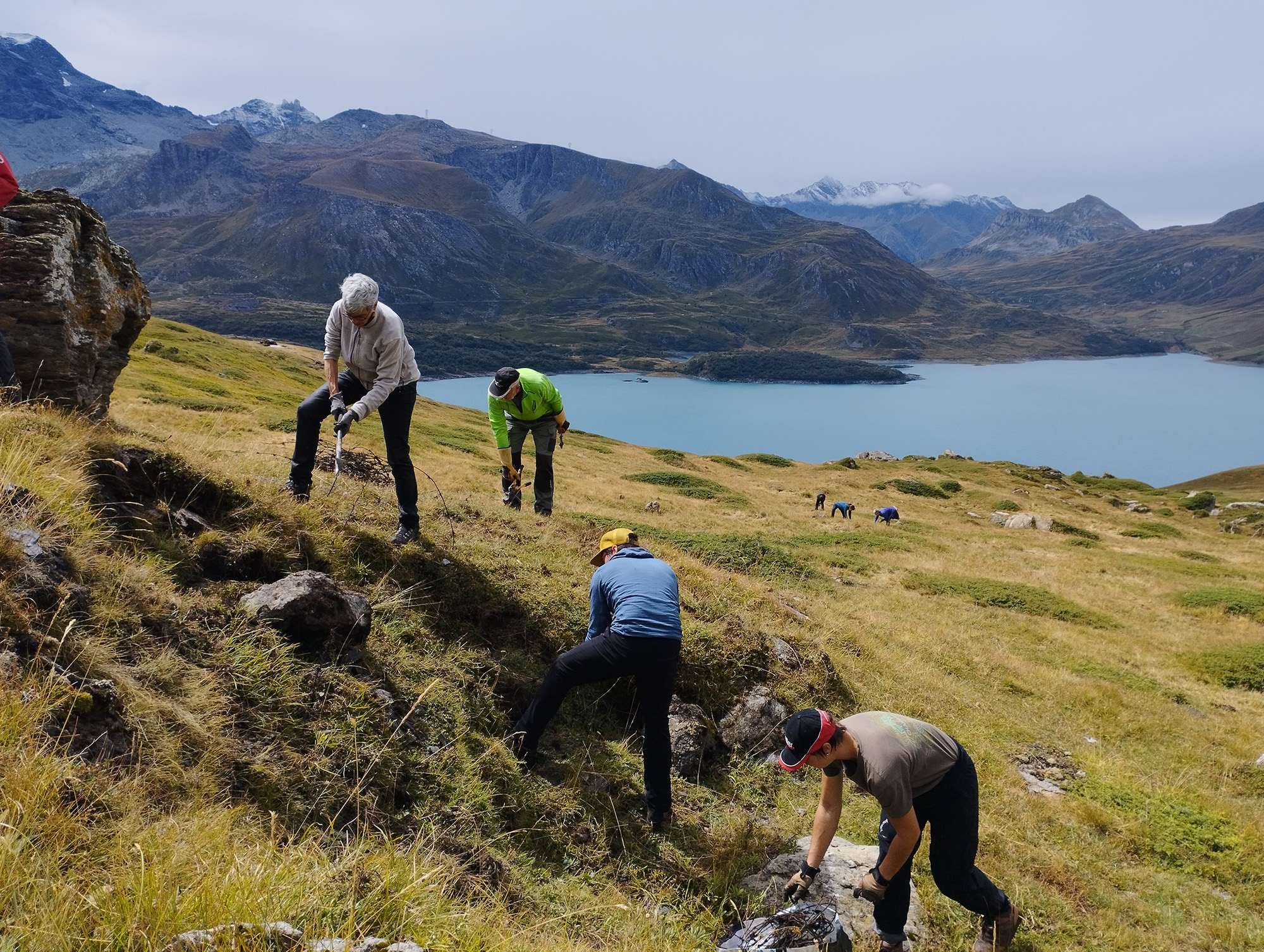
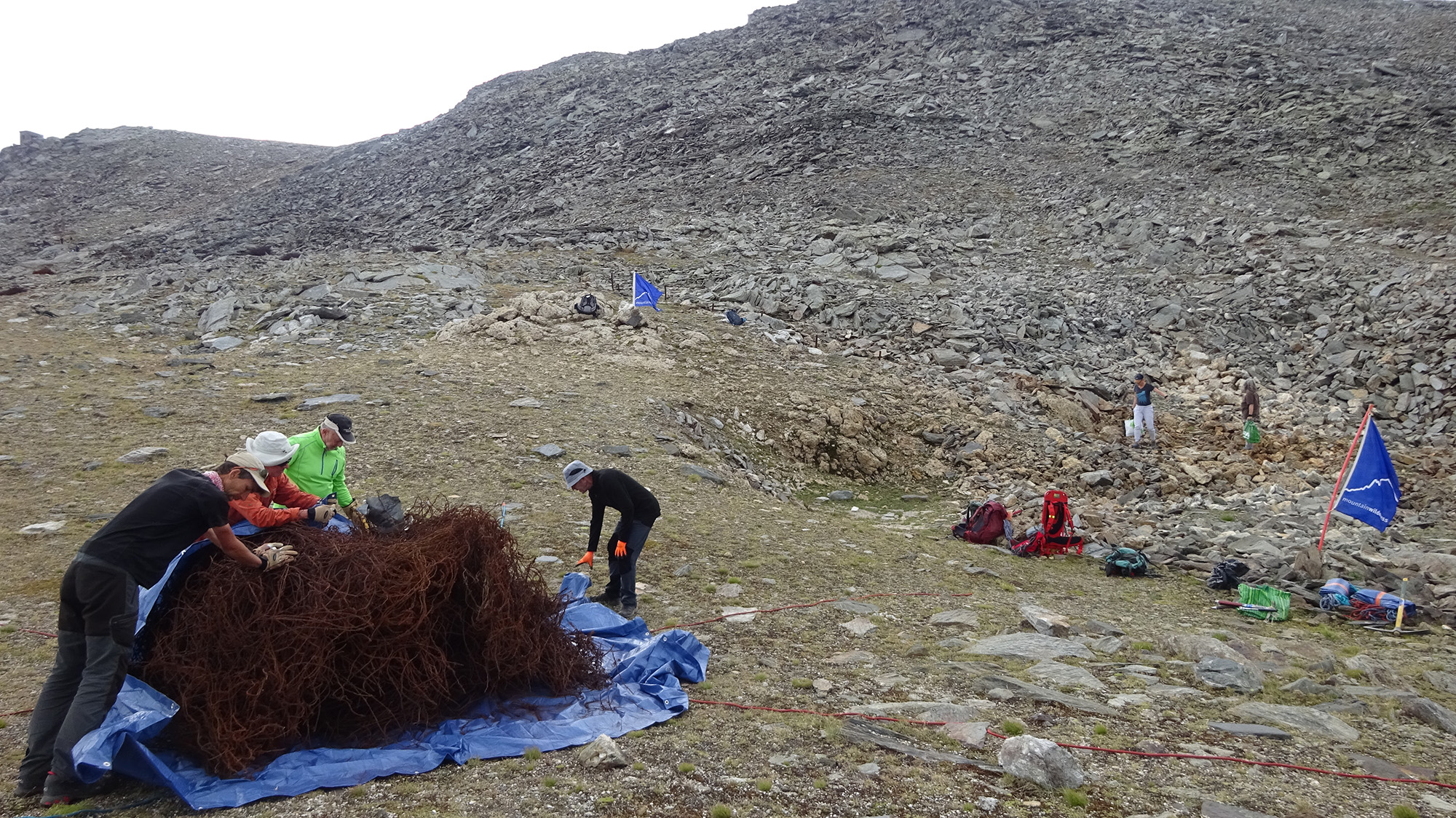
The Mountain Wilderness France association aims at uniting mountaineers and people who love the mountain environment from all over the world, to protect this part of nature, and to help maintain the last wild mountain areas. With their action ‘Obsolete Installations’, the association helps making an inventory, and dismantling these abandoned tourist, industrial, agricultural, and military set-ups, that are a real source of visual pollution, and, to a limit, a danger to visitors and to the fauna. Each season, volunteering work sites are regularly set in place.
In August 2023, Mountain Wilderness tackled an obsolete military installation above the lake of Mont-Cenis, in Haute-Maurienne. It involved barb wire lines, relics of the Second World War. Volunteers removed four tons of metal scraps from the mountain! (Barb wire, metal sheet, poles)
Our support has equally served to improve the collaborative website dedicated to this campaign: installationsobsoletes.org
For 2024, the foundation renews its support for the ‘Obsolete Installations’ initiative, that Mountain Wilderness has been leading for 20 years. This year, it is about organising five working sites in the Alpes du Nord, du Sud, and the east Pyrenees, with the aim of dismantling installations that have remained unused for several years.
This year, we will equally support their ‘ReWild’ project, for wilderness preservation, and the reduction of noise pollution. In the mountains, wilderness is characterised mainly by the silence that visitors come to seek. Silence is threatened by the development of motorised access in the mountains, and by induced noise pollution, leading astray the fauna. Nevertheless, there is a lack of data describing this soundscape deterioration, and facilitating measures to apply. The ReWild objective is to illustrate how the vehicle access limitation in a natural area can allow the restoration of silence and wilderness.
LOCATION
Alpes – Pyrénées
FINANCIAL SUPPORT
€10,000 (2023), €12,000 (2024)
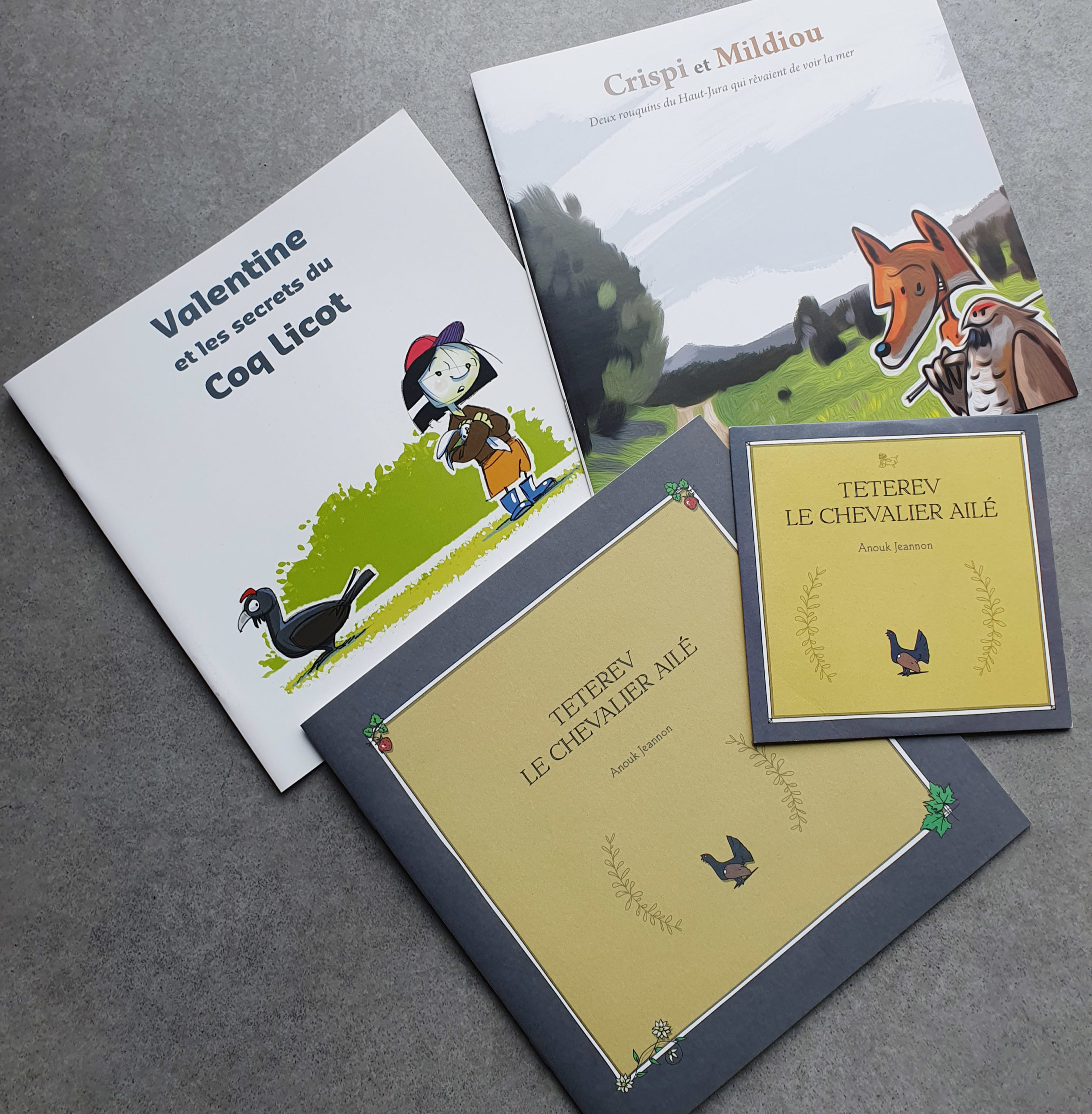
The mission of the Groupe Tétras Jura is to gather stakeholders, and to act towards biodiversity preservation in altitude forests in the Jura mountain range. It contributes to a better inclusion and conservation of grouse (capercaillie, black grouse, etc.) in the management of altitude forests, and the development of activities in natural areas. Making these species known is a major factor for their protection, and their recognition as a local heritage element by the Jura population.
The Groupe Tétras Jura association wishes to write a book on biodiversity in the Jura altitude forests. It is a book for children between 7 and 12 years old, telling the story of small mountain owls. This book will be edited in Braille, and in an ‘Easy to read and understand’ format, adapted to children with disabilities, or suffering from cognitive, or comprehension disorders.
LOCATION
Jura
FINANCIAL SUPPORT
€8,000 (2024)
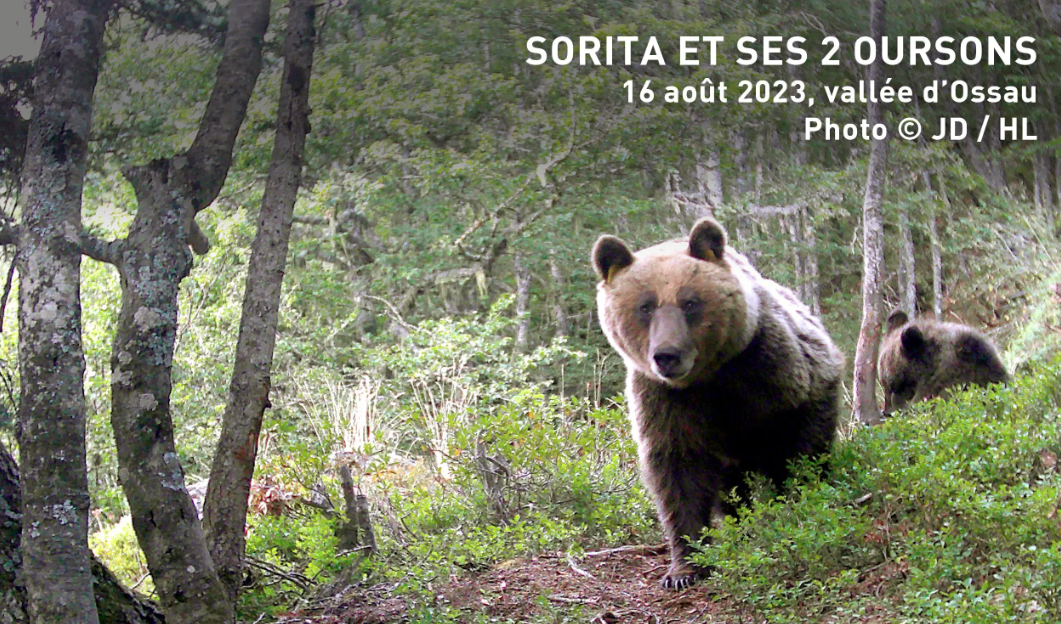
LOCATION
Pyrénées
FINANCIAL SUPPORT
€7,500 (2024)
‘Pays de l’Ours’ is a major stakeholder for the reintroduction of bears in the Pyrenees. Thanks to their help, in 1996 and in 2006, eight bears were released in the Central Pyrenees, and then, in 2018, the first two females were released in the western Pyrenees.
Since then, the association continues this bear population restoration work, following experts’ estimations. The working directions that the association takes are the restoration of a viable population, and the human-bear reconciliation. Their actions go through advocacy work, studies, communication, campaign demonstrations, and legal actions.
The association launched a marauding project to raise awareness among mountain users (residents, hikers, tourists) with regards to biodiversity, the brown bear presence in the Pyrenees, and the preservation of natural areas in the mountains, for a good level of territorial sharing. The goal is to reinforce a positive image of the brown bears in the Pyrenees, and to inform people on the behaviour to have in case of encounter.
These preventive actions are achieved by means of hikes over several days on highly frequented tracks, such as GR10, lac d’ô, Luchon, Melles, etc.
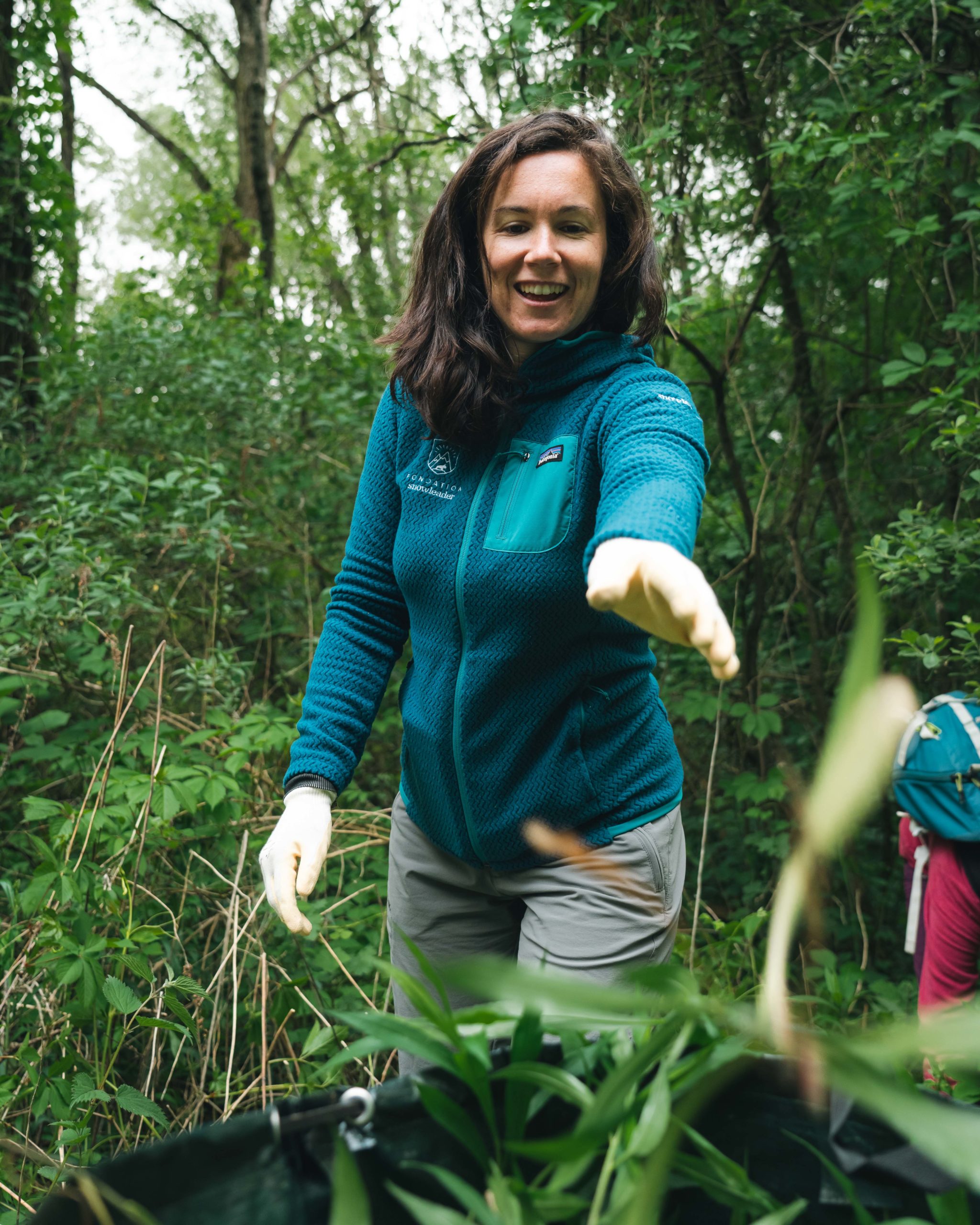
The main mission of the Centre de la Nature Montagnarde is to propose actions and activities for the general public, throughout the whole year. The aim is to facilitate a discovery of the environment that mountains offer. With the help of a positive experience when in nature, the challenge is to raise awareness about environment fragility, and to encourage an attitude of respect towards it.
Have you heard of the ‘Invasive Exotic Species’? Himalayan balsam, goldenrod, Japanese knotweed, buddleia, giant hogweed, common ragweed, etc. are species introduced by humans in a specific area, intentionally or unintentionally. These species threaten ecosystems, natural habitats, and local species. They are a threat to biodiversity, and climate change is not helping either. Once properly settled, these invasive exotic species are very difficult to eradicate. Their removal involves important human means. This is the proposition of the Centre de la Nature Montagnarde: participative working sites throughout the year to fight against these species. Until October 2024, five working sites will be organised.
LOCATION
Alpes du Nord – Haute-Savoie
FINANCIAL SUPPORT
€1,500 (2024)
The Parc naturel régional du massif des Bauges (Regional Natural Park of the Bauges Mountain Range) hosts a fragile fauna and flora; it is also a residential, working, and entertainment region. The park’s objective is helping residents and tourists understand the various implications, and the activities that take place in order to protect the areas, and to facilitate usage coexistence.
To respond to conservation and coexistence implications, the Park created a communication campaign called ‘La montagne…respect !’ (The Mountains … Respect!) . Thus, for several years, 12 young eco-volunteers have been recruited for the summer season to pass on conservation messages, raise awareness among hikers regarding environmental implications, and habits to take on board, particularly in high usage areas.

LOCATION
Alpes du Nord – Savoie and Haute-Savoie
FINANCIAL SUPPORT
€7,000 (2023)
For My Planet is a social, civic, and environmental school with the goal of providing teenagers with the keys and the means to face the ecological and social challenges of our times, as well as to implement them. The association defends the idea that action is the drive for transition.
Thanks to the Protect Ice & Reduce Waste project, sponsored for two years already, around sixty young people from six schools in France become sentinels of the environment. For this, they get trained during the school year regarding climate change and its consequences in the mountains. In parallel, they have their own eco-responsible actions that they manage in their school or town; in April, everyone gets together for five days in Chamonix for a scientific expedition. They then organise around twenty conferences, during the following year, to raise awareness in their turn. (In companies, schools, hospitals, etc.)
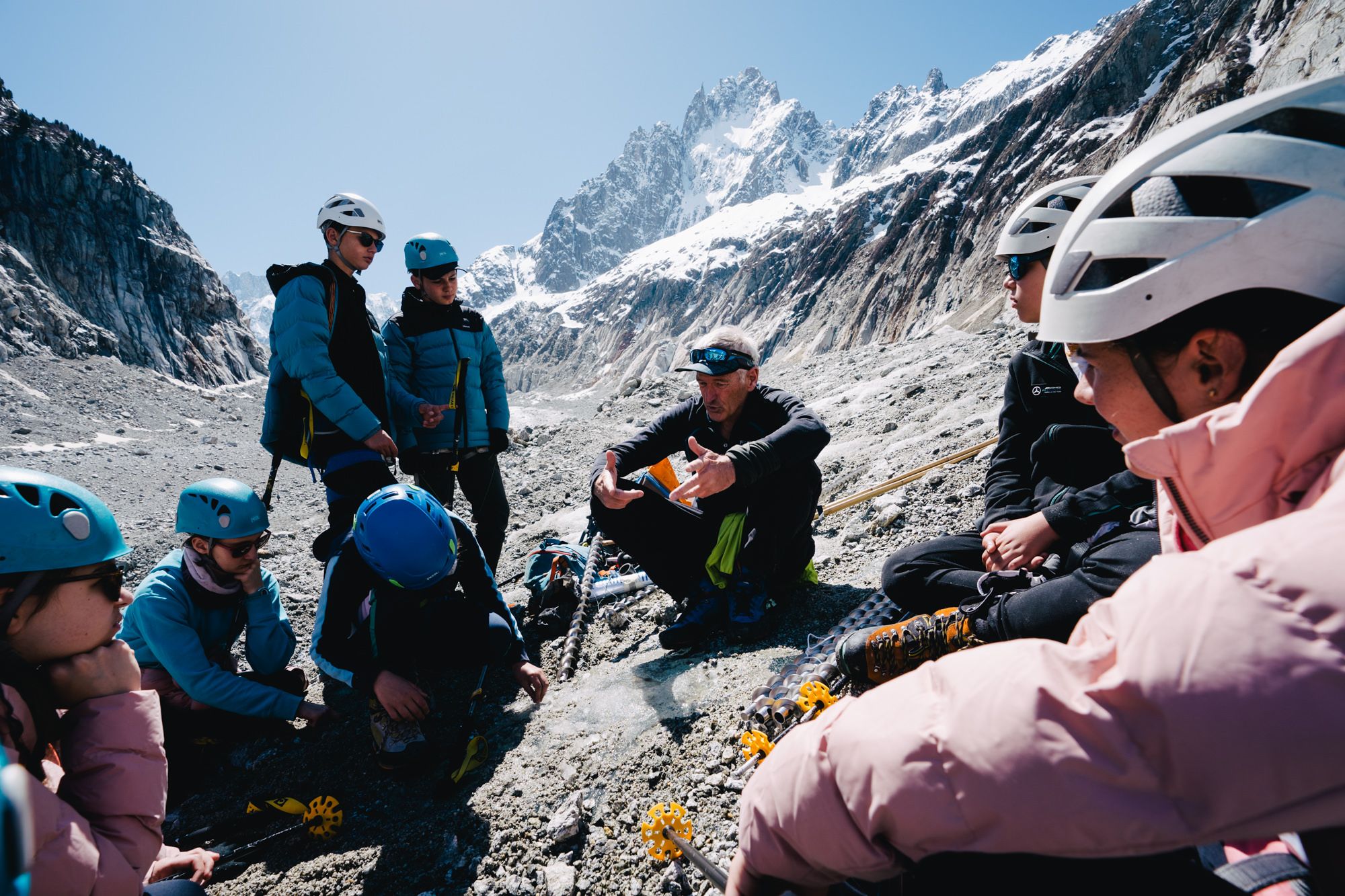
LOCATION
Alpes du Nord – Haute-Savoie
FINANCIAL SUPPORT
€5,000 (2023), €3,500 (2022)
Mountain Riders is an educational association focusing on ecological transition. The association acts for the conservation of mountains, both an essential and a fragile environment. Each year, it organises rubbish collection events to invite people to act, clean, and maintain our mountains rubbish-free.
In 2022, the association started a large-scale rubbish classification project: Zero Waste Mountains 2030. The goal is to identify the types of rubbish during the collection events, to understand their origin, and therefore to reduce this type of pollution in our mountains. A classification kit was designed, in 10 copies, made of recycled materials, thanks to our financial support. These kits were made available in the mountain regions (Vosges, Jura, Oisans, Tarentaise, etc.), and training sessions are held to help local stakeholders become autonomous and collect data. We were present at the collection event in Menuires!
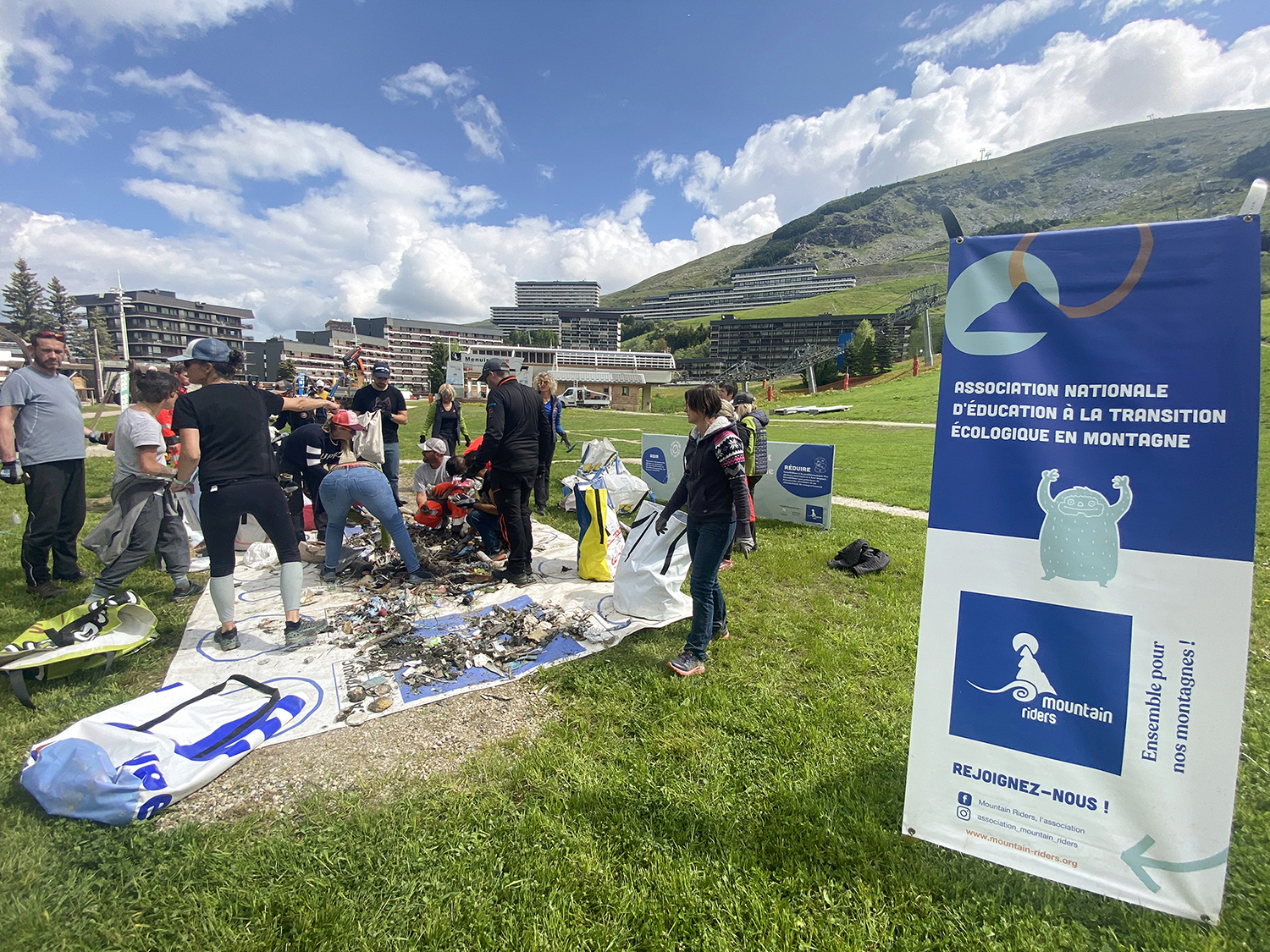
LOCATION
Alpes du Nord, Alpes du Sud, Pyrénées, Jura
FINANCIAL SUPPORT
€15,000 (2022)
The goal of the Conservatoire d’espaces naturels de Haute-Savoie (Conservatory for Natural Areas of Haute-Savoie) is to lead a general interest mission for the conservation and management of natural areas and species; the territorial policy council; the scientific expertise on natural areas, species, their habitats, and landscapes; and raising awareness about the environment.
Alpine walls, used by climbers, host an avifauna sensitive to disturbances, sometimes rare and often protected. (For example: the bearded eagle.) Informing and educating climbers is essential in order to save these birds. Maintaining a follow-up of this avifauna on climbing sites, in coexistence with the activity is a condition for their survival. Through the Nest&Climb project, the Conservatory builds a bridge between climbers and naturalists for updates regarding existing nests, their occupation period, and itineraries to avoid during these periods.
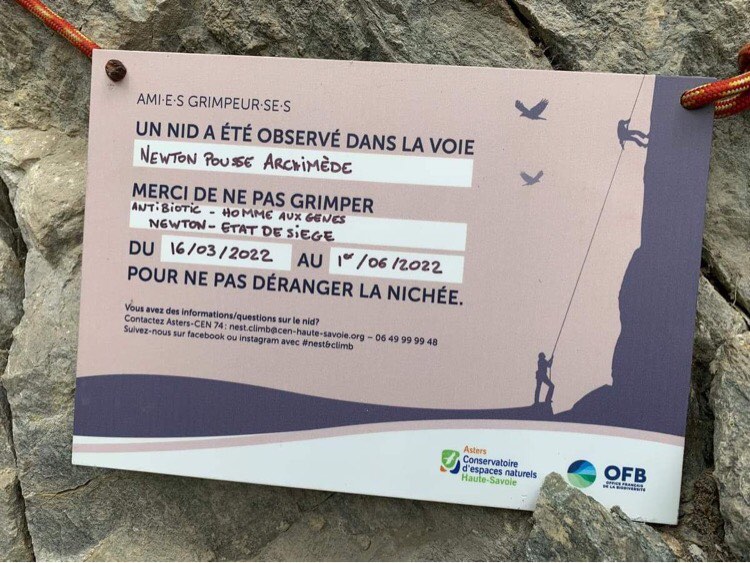
LOCATION
Alpes du Nord – Haute-Savoie
FINANCIAL SUPPORT
€7,000 (2022)
France Nature Environnement (FNE) Haute-Savoie is an association that works on the protection and preservation of the environment, that acts throughout the entire department. It works closely with the territories and initiates various actions: naturalist expertise, environmental education, legal supervision, etc.
The Alpine Garden is situated in the pastures of Semnoz (the Bauges mountain range); it is designed to present about a hundred various flower species, specific to low-altitude mountains, with a conservation goal. This space is free of charge, and open to everyone from June to September. Each year, FNE Haute-Savoie maintains this Alpine Garden, and organises permanent staff and events throughout summer: environmental promoters raise awareness among hundreds of visitors regarding the conservation of low-altitude mountain biodiversity.
LOCATION
Alpes du Nord – Haute-Savoie
FINANCIAL SUPPORT
€6,000 (2022)
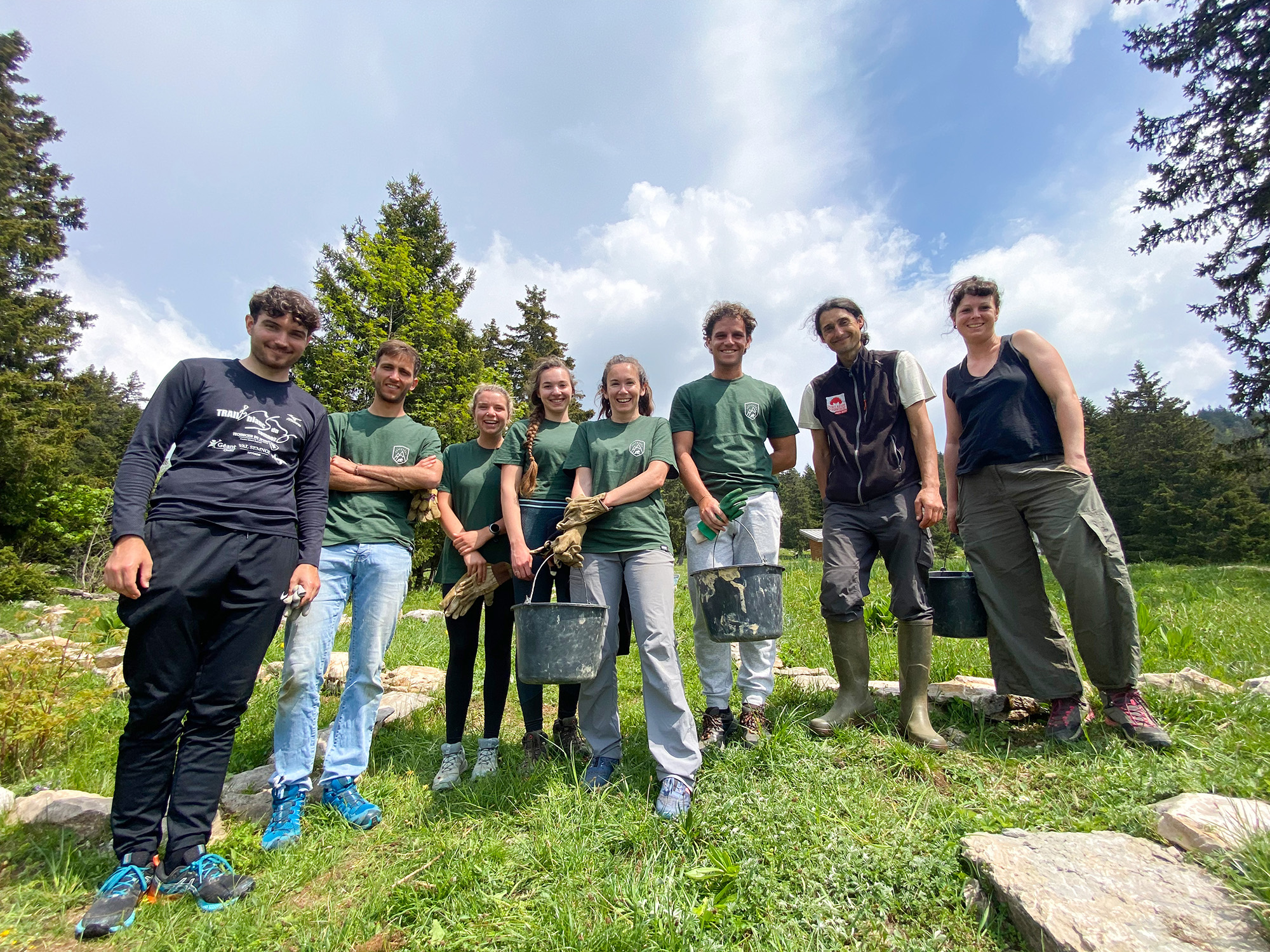
The Mountain Wilderness France association aims at uniting mountaineers and people who love the mountain environment from all over the world, to protect this part of nature, and to help maintain the last wild mountain areas. With their action ‘Obsolete Installations’, the association helps making an inventory, and dismantling these abandoned tourist, industrial, agricultural, and military set-ups, that are a real source of visual pollution, and, to a limit, a danger to visitors and to the fauna. Each season, volunteering work sites are regularly set in place.
We were present on site for the action that took place in 2022, in the Hautes Alpes, in Saint-Firmin. The action involved dismantling a ski lift that had not been used for 17 years, situated between 1,350m and 1,558m altitude. The last time it had functioned was in the winter of 2004-2005.
LOCATION
Alpes du Nord – Hautes Alpes
FINANCIAL SUPPORT
€10,000 (2021)
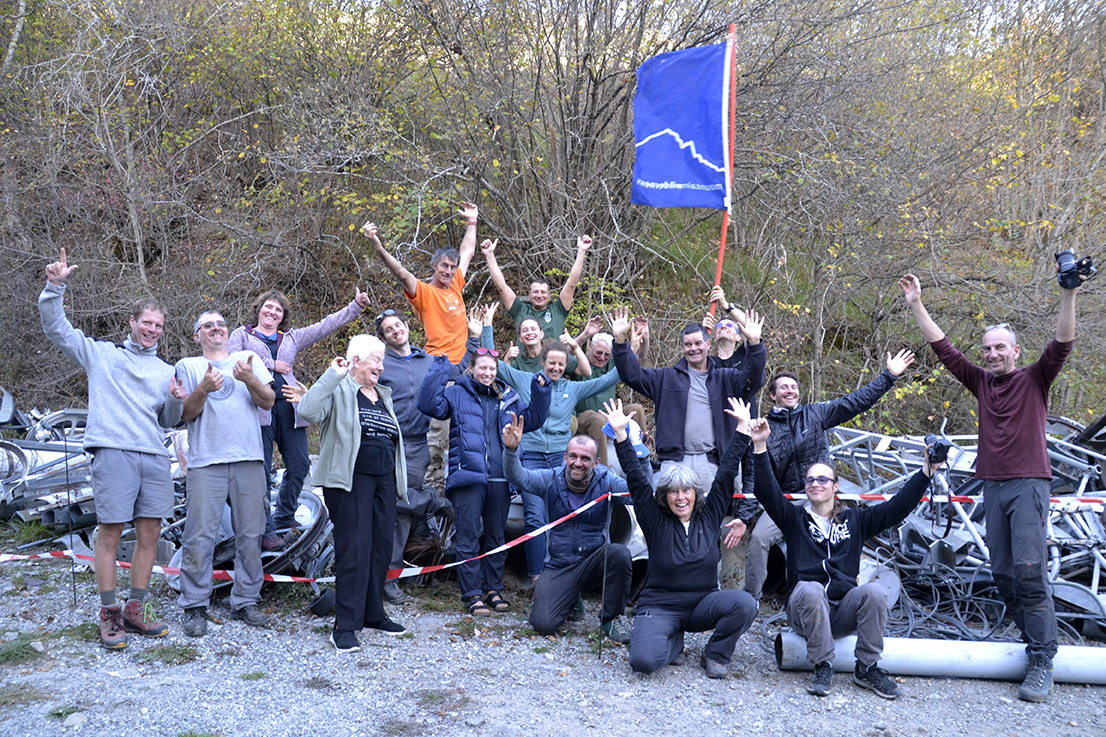
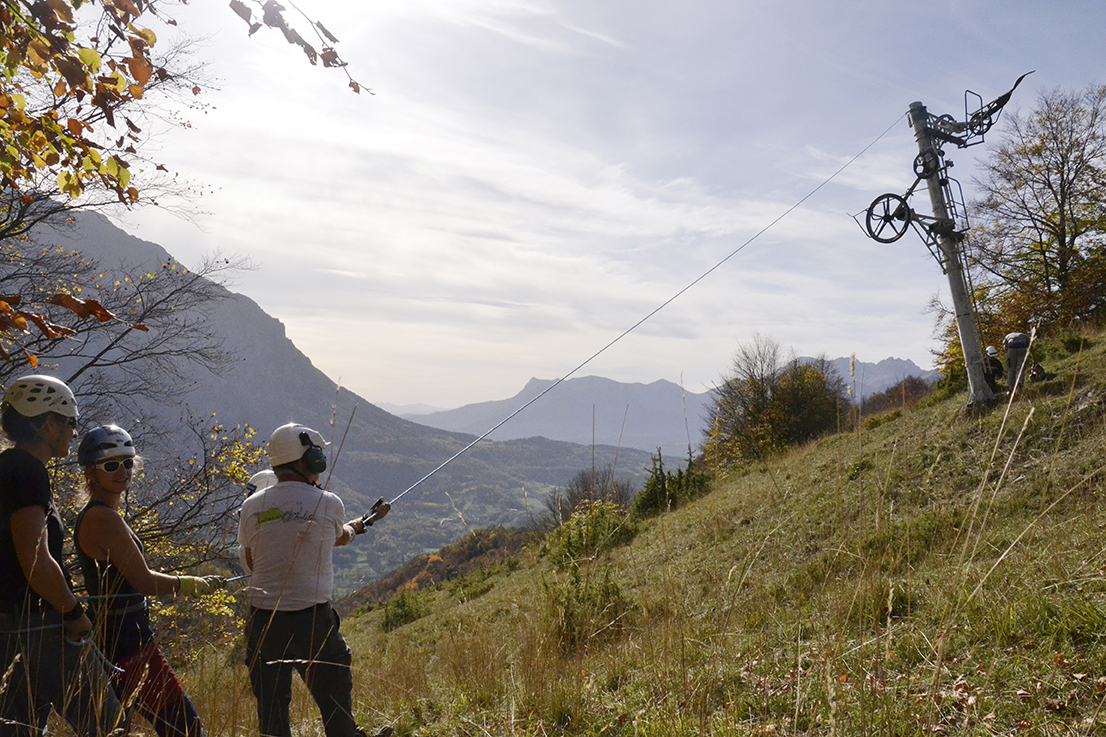
Ligue pour la Protection des Oiseaux (LPO – League for Bird Protection) has as a goal to protect birds and the ecosystems they depend on, and globally, biodiversity of the entire country. The goal of the ‘Biodiv’sports’ project, developed by LPO Auvergne Rhône-Alpes, is to communicate information regarding areas that are highly fragile for the fauna, on platforms and websites, making an inventory of sports itineraries in the natural environment.
The project wishes to create a dialogue with users, improve knowledge, and encourage them to consider wild fauna when they head for the mountains.
The goal? Providing natural environment users with the knowledge that they need to take ownership of the species protection implications, grasp the concept of disturbance, and adapt their behaviour deliberately. The key phrase of this project is activity conciliation.
‘Biodiv’sport’ aims at all types of fauna (birds, caprine species, etc.) and concerns numerous sports activities (ski-touring, mountaineering, snow-shoeing, rock climbing, paragliding, canoeing, kayaking, trail running, etc.). Since 2018, the tool is operational on websites such as Camptocamp, IGN Rando, Whympr, etc., and the project is growing today more and more.
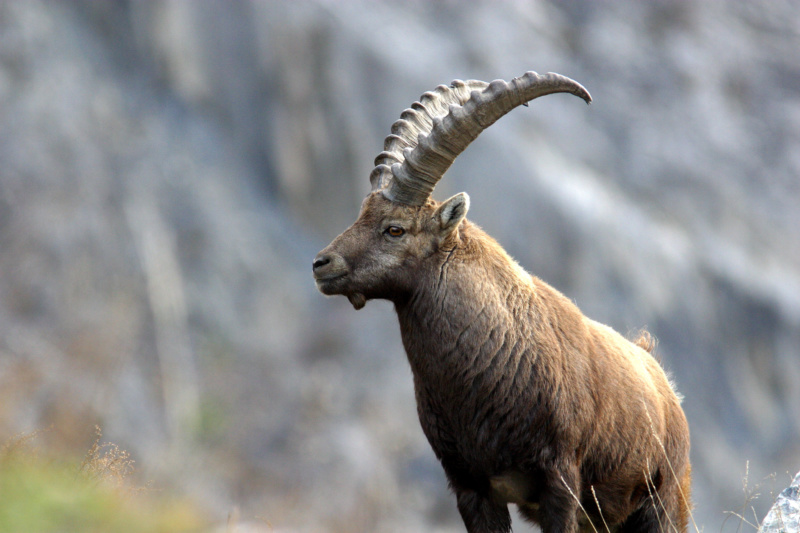
LOCATION
Alpes du Nord
FINANCIAL SUPPORT
€8,000 (2021)
The goal of the Conservatoire d’espaces naturels de Haute-Savoie (Conservatory for Natural Areas of Haute-Savoie) is to lead a general interest mission for the conservation and management of natural areas and species, the territorial policy council, the scientific expertise on natural areas, species, their habitats, and landscapes, and raising awareness about the environment.
Throughout the years, the members of the association have concluded that there were tools to explain global warming at a general scale, but none adapted specifically to mountain regions. In 2021, they wanted to create an educational game, that raises awareness: the Mountain Fresco, inspired from the Climate Fresk principle. The game takes the form of cards that need to be arranged in a logical order to recreate a schematic view of climate change impacts on mountains, their natural areas, and human activities that depend on them. After understanding it, the game equally invites players to imagine optimal future scenarios. In 2024, the final phase of this project started. (Graphic design, and game printing)
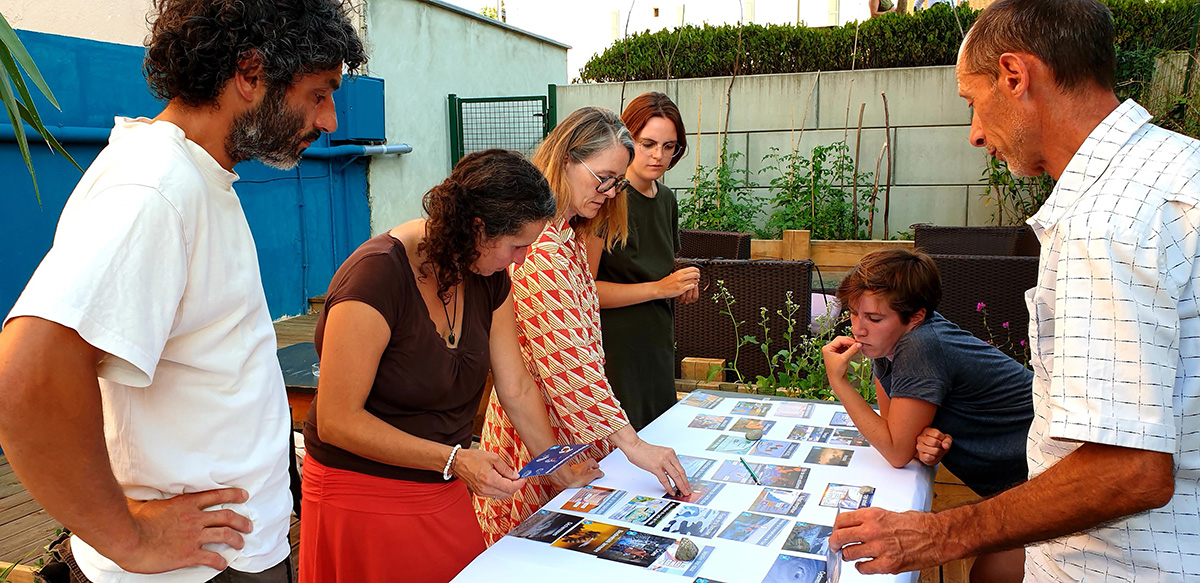
LOCATION
Alpes du Nord
FINANCIAL SUPPORT
€5,000 (2021)